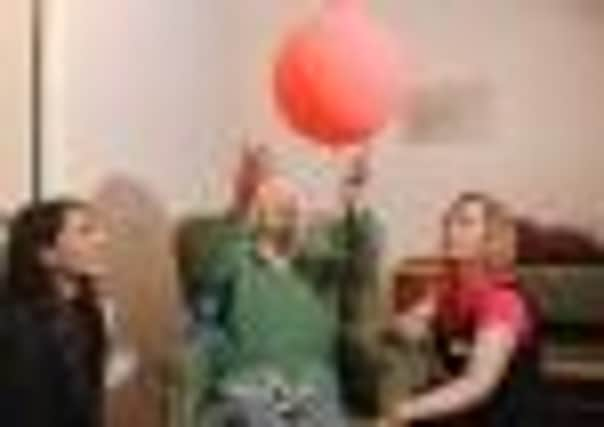Care homes enjoy dance revolution


But thanks to students at Queen Margaret University, that is exactly what Colinton Care Home resident Joan Mitchell is able to enjoy.
Joan is one of around 45 residents at three care homes across the city – Colinton, North Merchiston and Murrayfield House – to have taken part in a pilot project.
Advertisement
Hide AdAdvertisement
Hide AdDance movement psychotherapy is typically used as a treatment for people who are emotionally distressed or socially deprived, and for those who experience physical or mental illness or disability.
Students at the university have previously completed placements at in hospitals and voluntary organisations, as well as with adults suffering from mental health problems and children with emotional and behavioural difficulties, but the pilot project was the first time they had taken the sessions into care homes.
The project ran for six months and proved so popular that the students, who are studying for a masters degree in dance movement psychotherapy, have continued to provide the sessions. They also hope to expand the sessions into other care homes across the city.
Joan, who has been a resident at Colinton for the last 12 years, found the sessions gave her an opportunity to remain active.
She said: “I have no desire to lie back and do nothing. Some of it is a bit simple sort of thing, but you’re moving and that’s a great thing.”
Student Michelle Rush, 23, has been working with Joan on a regular basis.
She said: “Joan is just fantastic and I have learned a lot about the simple things and what can make someone happy. Most of the days Joan has really high energy, she’s moving and is very mobile, but it’s different with each person. You do what you can with each person and encourage them to do the best they can.”
The students have been using a range of props, from soft balls and balloons to paper plates and pom poms, to help get the residents moving.
Advertisement
Hide AdAdvertisement
Hide AdThe collaborative project, which started in September 2010 and involved the university, NHS Education for Scotland and the Care Inspectorate, aimed to identify how care homes could support dance movement psychotherapy students to improve their skills and learning, as well as discovering what benefits residents received from the sessions.
Programme leader for the university’s MSc in dance movement psychotherapy, Dr Vicky Karkou, said she found it “very rewarding” to see the students putting their knowledge into practice.
Another student involved in the sessions, Heather Cooney, said: “At the beginning, there was very little interaction with residents. However, at the end of the session there was lots of interaction, sharing stories and reminiscing. My role became less directive as the residents took control and decided what they wanted from the sessions.”